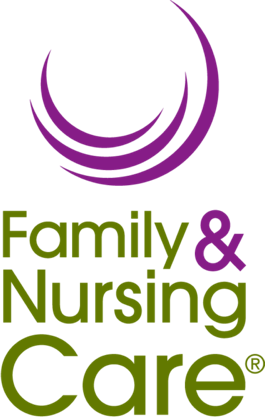1. The Ever-Changing Economics of Home Care
A major focus of 2024 will be the continued evolution of economics in home care. Wages for caregivers are rising, which leads to increased costs for clients. Home care providers are trying to balance this by maintaining affordable, quality care experiences while also staying competitive in the marketplace. “While economic challenges persist, the introduction of the Health Care Fairness for All Act could have significant positive implications for the health and home care industries in 2024 and beyond,” says Kursban. This bill would offer a new way to obtain health care coverage in the U.S. by allowing people to save and pay for it, including home care services, with tax-advantaged methods like Health Savings Accounts, further enabling access to the support people need.
2. Care at Home
This year is projected to see a rise in at-home care over hospital, hospice, or nursing home care due to the continued added pressure on healthcare systems and an increased interest in keeping older adults at home and comfortable. This may come as a relief to overwhelmed hospitals and the healthcare industry in general and will push home care providers to offer a wider variety of services while increasing hiring. “Some studies have shown continuing care at home can often lead to better recovery and less infection,” says Markowitz. “However, while there certainly are benefits to recovering at home, it’s important that home care companies work closely with healthcare providers to ensure any gaps are filled for an individual to achieve a successful return to health.”
3. Importance of feedback
Two-way communication and soliciting feedback from stakeholders will be a key focus area in 2024 as companies look to enhance the customer experience. As clients and their families continue to seek customized care, it’s critical that home care providers listen to them and use that feedback to shape tailored, individualized care plans and to understand key learnings that can lead to better policies and practices that benefit clients systemwide. At the same time, it’s also important for home care providers to survey caregivers to better understand the type of work they are looking for, so they can be put in the best possible situation to support and care for clients. “Too few companies actually survey their customers, but it’s vital to get meaningful feedback from everyone involved in the care journey in order to innovate new ways to provide access to top-notch care and determine gaps in the process,” says Kursban. This feedback loop also shouldn’t stop at just clients and caregivers. Markowitz adds, “Care professionals at hospitals, rehabilitation centers and across the industry are the eyes and ears that tell us what to look out for, so we can be ready to help clients in any situation.”
4. New Laws & Regulations
Balancing the need for appropriate home care regulations while preventing overregulation will be crucial for the industry in 2024. Excessive legislative changes can stifle innovation and create distrust by home care providers, ultimately leading to slower industry growth, lower revenue, and potentially creating negative client experiences as bureaucratic paperwork and administrative duties can pull focus from their care. “Baseline regulations that set forth good business practices to keep clients and caregivers safe are essential,” says Kursban. “It’s important that the home care industry supports fair and achievable licensing standards nationwide to prevent individual states from implementing overly burdensome regulations. This will also create a trusting relationship with regulators and show that everyone has the same goals – the best quality of and access to care.”
5. Advancements in Technology
Innovation in home care technology will continue to advance. Not only will uses of Artificial Intelligence (AI) in home care be further developed, but critically important is finding more sophisticated software solutions that align with the needs of private pay home care companies when it comes to caregiver scheduling, client information, CRM, reporting, billing, and more. Advanced technology could help set dynamic pricing that adjusts based on local demand, ensuring competitive wages for caregivers and fair costs for clients and families. “We need software that empowers us, not replaces us, and gives us the ability to shape standardized reports into actionable insights,” says Kursban. “Technology should help care providers drill down into caregiver performance, identify training needs, build efficiencies, and ultimately allow home care companies to do what they do best – focus on human connection and taking care of people.”
The Family & Nursing Care Difference
While industry change is inevitable, Family & Nursing Care’s commitment to exceptional client care is enduring. As one of the oldest home care resources in Maryland and Washington, D.C., we’ve made it our mission to help older adults live their fullest independent lives in the comfort of their own homes. Here’s some of what sets us apart:
- For 55 years and counting, we’ve assisted tens of thousands of families by providing access to Caregivers who help with activities of daily living, including bathing, dressing, mobility assistance, errands, meal prep, light housekeeping, medication reminders, companionship, and more.
- Our longstanding relationships with hospitals, senior living communities, skilled nursing facilities, and long-term care insurance companies allow us to liaise in the coordination of what can often be an overwhelming process for clients and families. Whether it’s coordinating home care when a sudden need arises or supporting families following a hospital discharge, our team stands ready to support them 24/7, 365 days a year.
- Only the top 8% of Caregivers who apply meet our unwavering standards of excellence, ensuring every Caregiver we work with is the best-of-the-best.
- Given Family & Nursing Care’s record as a nine-time winner of Bethesda Magazine’s Best of Bethesda Readers’ Poll, an A+ rated company by the Better Business Bureau, and a Circle of Excellence recipient by the National Business Research Institute, it’s no wonder why more than 25% of Family & Nursing Care employees have been with the company for over 10 years.
To learn more about Family & Nursing Care’s leading home care services, visit the Why Us? page on our website. To learn more about what’s on the horizon for the industry in 2024, see what Kursban and other home care executives had to say in Home Health Care News’ 2024 Executive Forecast: What 9 Home Care Leaders Expect Next Year.


 As the landscape around home care continues to evolve, so do priorities and industry trends. In 2023, the home care industry was majorly impacted after the expiration of the COVID-19 Public Health Emergency in May. This led to the end of Medicare’s “3-Midnight Rule” waiver and affected thousands of individuals across the United States as it highlighted critical gaps in care. Additionally, in a year of change, the White House issued an executive order on improving the nation’s care infrastructure, and a new emphasis on artificial intelligence in workplaces began.
As the landscape around home care continues to evolve, so do priorities and industry trends. In 2023, the home care industry was majorly impacted after the expiration of the COVID-19 Public Health Emergency in May. This led to the end of Medicare’s “3-Midnight Rule” waiver and affected thousands of individuals across the United States as it highlighted critical gaps in care. Additionally, in a year of change, the White House issued an executive order on improving the nation’s care infrastructure, and a new emphasis on artificial intelligence in workplaces began.



